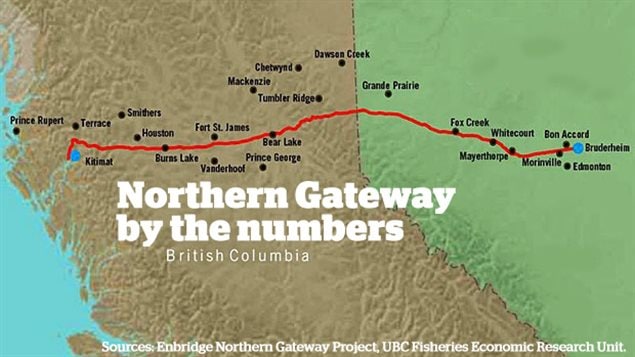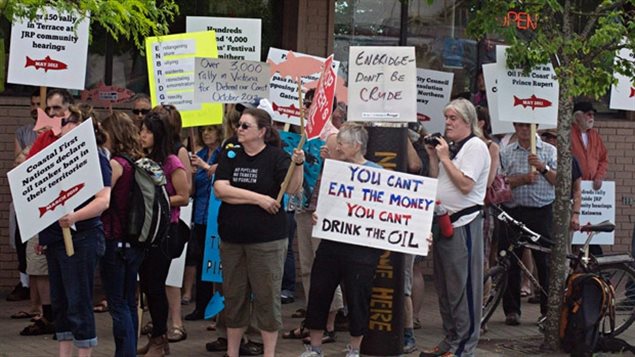There seems no end to controversy surrounding the Northern gateway pipeline project.
The oil industry wants to build a 1,177 kilometre pipeline to connect the oil sands in Alberta to a terminal on the British Columbia coast.
The British Columbia Civil Liberties Association (BCCL:A) filed a complaint in February with the Security Intelligence Review Committee, the watchdog agency that overseas and investigates the actions of Canada’s security agencies. The complaint is about Canada’s security services spying on opponents of the petroleum industry and who is sitting on the review board investigating complaints about this activity.

This comes following media reports suggested that Canada’s spy agency, the Canadian Security Intelligence Service (CSIS) and the Royal Canadian Mounted Police (RCMP- federal police force) have been investigating protesters and anyone opposed to the petroleum industry as potential threats to national security.
The complaint also cited reports that CSIS had worked with and shared information with the National Energy Board about so-called “radicalized environmentalist” groups seeking to participate in the board’s hearings on Enbridge’s Northern Gateway pipeline project
The complaint notes that groups such as Leadnow, ForestEthics Advocacy Association, the Council of Canadians, the Dogwood Initiative, EcoSociety, the Sierra Club of British Columbia and Idle No More, the indigenous rights movement, are not criminal organizations, nor do they have any history of “advocating, encouraging, or participating in criminal activity”.
The complaint also points out that the CSIS Act is clear that “lawful advocacy, protest or dissent” cannot be regarded as threats to national security, the complaint adds.
Concerns of possible pro-petroleum bias
The BCCLA is also concerned about the appearance of bias by the review committee members.
Former cabinet minister Chuck Strahl stepped down as chairman of the review committee earlier this year after it was revealed he had registered as a lobbyist on behalf of Enbridge’s Northern Gateway project.
Denis Losier, another committee member was also cited as a concern due to his past as a former board member of Enbridge. However he has since left the committee.
In August Yves Forties, lawyer and former abassador to the UN was appointed to the committee, and would lead the investigation into the February complaint.
In this latest concern, the BCCLA notes that Fortier also has petroleum industry connections having once sat as a board member of TransCanada Pipelines, the company behind the Keystone XL project.
Although the September 25 letter of complaint from the BCCLA says Fortier has a good reputation, his involvement nevertheless creates an appearance of bias. They are asking that he step away from involvement in this file.
Besides Fortier, the other current members of security agency watchdog committee are Gene McLean, a private security specialist, and Deborah Grey, a former MP who is serving as interim chairwoman.







For reasons beyond our control, and for an undetermined period of time, our comment section is now closed. However, our social networks remain open to your contributions.